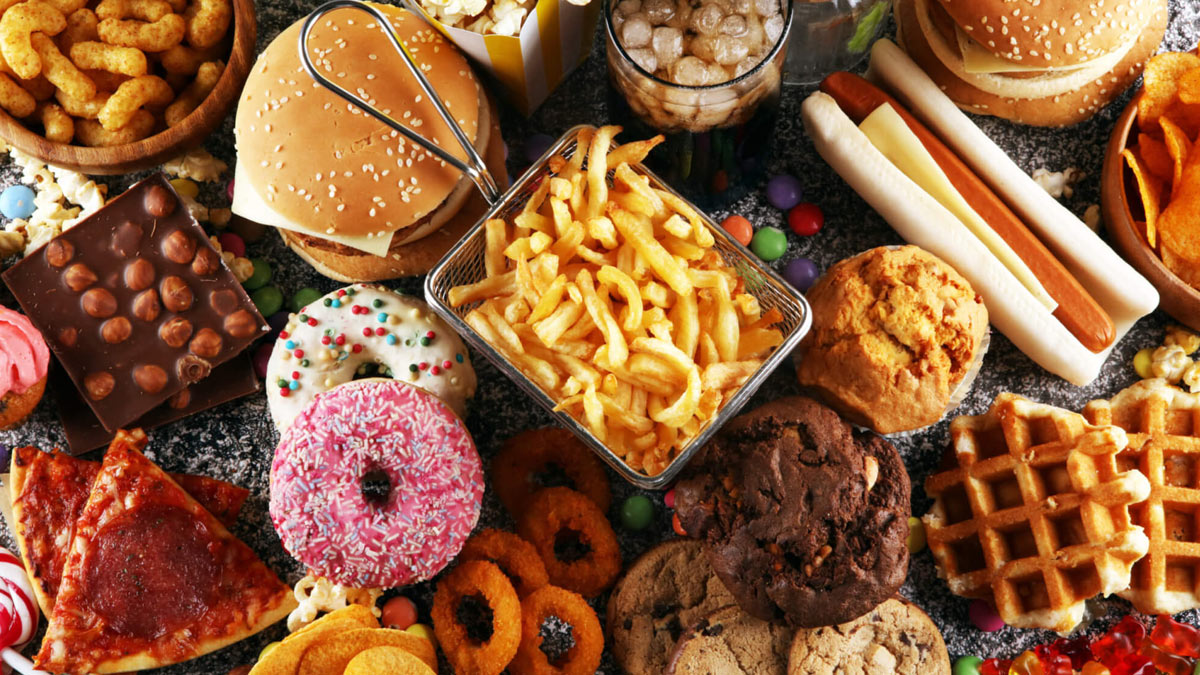
In the current times, one can notice a significant shift in the dietary habits of children. Where back in the day, it consisted of meat and plant based foods, it is now filled with ulta-processed treats like fries, ice creams, burgers, and what not. The results of this shift are right there in front of our eyes.
Table of Content:-
A recent study has uncovered a possible link between ultra-processed foods (UPFs) and dental deformities like buck teeth in children. As per the researchers from the Faculty of Medicine and Health Sciences at the Catholic University of Valencia, the present-day diet consisting of highly processed foods significantly affects jaw development in young children.

Shrinking Jaw Size In Younger Generation
As per the research, consumption of the ‘hunter-gatherer’ diets that were rich in meat, fruits and foraged foods led to jaw muscle stimulation, which in turn, led to complete jaw development in children. However, it is being noted that the younger generation has increasingly smaller jaws due to altered dietary habits that includes highly processed foods (UPFs) like ice creams, yoghurt, cereals and ready-to-eat meals.
Also Read: Fabulous Lives Fame Riddhima Kapoor Reveals Diet Secrets For Toned Body At 44
The main reason behind this deformity in children is the ‘softer-than-ever’ texture of foods that doesn’t require adequate chewing. The prolonged consumption of soft baby foods doesn’t stimulate the jaw muscle in children and hence, leads to underdeveloped jaws and other related deformities.

The Finding Of The Study
The study examined the dietary habits, dental and skull structures of children between the ages three to five. It was found that their diets were heavily dominated by liquids or semi-solid foods like purees and yoghurt, which didn’t require much chewing. Softer foods do not engage maxillofacial muscles as effectively as harder, fibrous foods, leading to underdeveloped jaw structures.
Laura Marquez Martinez, one of the researchers stressed on the importance of chewing in proper development of jaws. She shared that it stimulates bone growth, strengthens facial muscles, and promotes proper dental alignment. She also explained that chewing solid and fibrous foods helps to prevent issues like misalignment of teeth and any deficiencies in the size and shape of dental arches.
Understanding The Effects Of UPFs On Children
There has always been a conversation around extensive sugar content and preservatives in ultra processed foods, however, it is more than just that. Researchers argue that the physical properties of these foods are equally detrimental to the health of young children. Soft textures make these foods ‘highly palatable’ that can lead to overeating along with inadequate jaw stimulation. Along with negatively impacting jaw and dental health, it can also lead to bigger issues like obesity, poor gut health, type 2 diabetes, etc. in children.
Bottomline
The far-reaching implications of ultra processed foods extend beyond just metabolic health to compromised bone structures. Experts suggest that incorporation of solid and fibrous foods in children’s diets can significantly improve the development of dental and bone structures in children. It is crucial to prioritize healthy eating habits and adopt sustainable dietary practices to ensure that any kind of long-term orthodontic issues are prevented.
Also watch this video
Read Next
Robin Uthappa Confronts Suicidal Thoughts Before Balcony Jump: How to Support Those with Depression
How we keep this article up to date:
We work with experts and keep a close eye on the latest in health and wellness. Whenever there is a new research or helpful information, we update our articles with accurate and useful advice.
Current Version